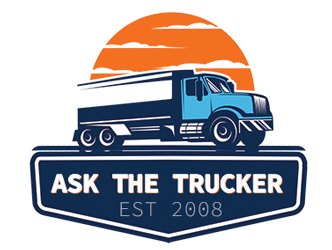Truck Drivers Retirement Planning
Retirement planning is crucial for everyone, but it is especially important for truck drivers who face unique challenges in their profession. The trucking industry presents its own set of hurdles when it comes to ensuring a comfortable and financially secure retirement. Knowing the available options for retirement plans and understanding the factors that may affect long-term financial stability for truck drivers can help them make informed decisions about their future.
One popular retirement plan for truck drivers is the 401(k), which allows for a higher maximum contribution compared to other retirement plans, and in some cases, may include an employer match. As truck drivers approach retirement, it is important for them to evaluate their financial security, ensuring they have enough coverage to maintain a comfortable and healthy lifestyle during retirement. Additionally, truck drivers should consider the health benefits provided by their employers and how they will adapt as they grow older.
Another option for truck drivers, particularly owner-operators, is the Solo 401(k) plan, specifically designed for self-employed individuals to save for retirement. This article will further explore various aspects of truck driver retirement, including financial planning, healthcare considerations, and the impact of recent legislation on drivers’ pension funds.
At what age do most truck drivers typically retire?
The American Trucking Associations estimates the average age of over-the-road truck drivers to be 46. However, a recent survey conducted by CCJ indicates that the average age among the survey’s respondents is 60 years old, with a mean age of 58 and a mode of 62. It’s important to note that drivers aged 55 and older ranked saving for retirement as their number two concern.
The survey also uncovered interesting findings about drivers’ retirement plans. Only 23% of respondents plan to retire by the age of 67, while a larger percentage (26%) plans to continue driving as long as their health permits. An even higher percentage, 32%, has not yet decided when they will retire.
When it comes to preparing for retirement, 28% of driver respondents stated that they are not saving for retirement, with company drivers (25% not saving) doing slightly better than leased drivers (35% not saving). This highlights the existing challenges for truck drivers in saving for retirement.
Retirement Savings and Programs
Among company drivers, only 42% said their employer offers some kind of retirement program, while 85% of leased drivers said the same. It appears that truck drivers have limited options when it comes to retirement savings and programs, which might contribute to the delay in retirement for many drivers in this industry.
Reasons for Delayed Retirement
There are several factors that influence a truck driver’s decision to retire or continue working. Financial necessity plays a significant role, with 34% of drivers stating they need the money and can’t afford to retire. However, some drivers continue working because they enjoy their jobs (37%) or simply don’t want to stop working (28%).
In conclusion, retirement age for truck drivers varies, and many factors can influence a driver’s decision to retire or keep driving. With an average age of 60 years old among survey respondents, it’s evident that many truck drivers continue working well into their later years. Financial concerns and limited retirement savings opportunities contribute to the decision for many drivers to keep working past traditional retirement ages.
An Intro To Retirement Planning for Truck Drivers

Determining the Right Age to Retire
As a truck driver, determining the right age to retire depends on various factors such as financial stability, health status, and personal preferences. It is essential to consider your Social Security benefits when planning for retirement. Truck drivers can start receiving Social Security benefits as early as age 62, at their full retirement age (between 66 and 67 years old), or later. However, collecting Social Security benefits before reaching full retirement age can result in reduced benefits, depending on your income. Therefore, it’s crucial to weigh your options and make a well-informed decision based on your circumstances.
Retirement Savings Strategies
Saving for retirement is critical, especially for self-employed truck drivers ineligible for employer-funded retirement plans. A study by the U.S. Department of Labor showed that Social Security will only replace about 40% of pre-retirement income for the average American. It is recommended to have about 70% of your pre-retirement income to maintain your lifestyle after retirement. If a trucker earning $60,000 annually needs $42,000 a year post-retirement, they would need approximately $840,000 for a comfortable 20-year retirement.
To achieve this, it’s important to start saving early. For example, if a 25-year-old truck driver saves $400 monthly until age 65, with a 10% annual growth, they could retire with nearly $2.5 million. In contrast, a 35-year-old starting at the same point will have a little more than $900,000 by age 65.
401(k) and Pension Plans
Truck drivers have several qualified retirement plan options that provide tax benefits and grow tax-deferred until retirement. Some popular plans include:
- Traditional IRA: Allows truck drivers to contribute up to $6,500 annually ($1,000 catch-up contribution limit for individuals aged 50 and older), tax-deferred, reducing taxable income.
- Roth IRA: Contributions are not deducted from income, so they’re taxable during the earning year but accumulate tax-deferred and are tax-free when withdrawn.
- Simple IRA: Designed for companies with fewer than 100 employees, allowing both the truck driver and their employees to contribute and receive a match.
- SEP IRA: Allows employers to contribute up to 25% of their net income (up to $66,000 total) to an IRA for themselves and their employees.
- Individual 401(k): Solo 401(k) plans have an annual contribution limit of up to $22,500 and are available to those classified as employees of their own business.
- Roth 401(k): A combination of Roth IRA and solo 401(k), contributions are taxed during the earning year, but never again7.
By considering these retirement plans and starting to save early, truck drivers can ensure a financially secure retirement while maintaining their desired lifestyle.
Social Security and Government Benefits For Truckers
Eligibility and Application
Truck drivers, like other employees in the United States, are eligible for Social Security benefits after reaching a certain age and accruing enough work credits. To qualify, they must have contributed to the Social Security system throughout their working years. The application process involves providing personal information, employment history, and documentation to the Social Security Administration (SSA).
Maximizing Social Security Benefits
To make the most of their Social Security benefits, truck drivers should consider several factors, including:
- Retirement Age: The full retirement age varies depending on the birth year. Drivers can choose to retire early but may receive lower benefits as a result.
- Earnings: A truck driver’s income can impact their benefits, as their 35 highest-earning years will be used to calculate the benefit amount.
- Work History: Maintaining a consistent work history will help drivers maximize their benefits, as the SSA requires at least 40 work credits (approximately 10 years of employment) to be eligible.
Additionally, truck drivers can continue to work and earn income while collecting Social Security benefits, which may increase their overall retirement income.
Medicare and Health Insurance After Retirement
Truck drivers who are eligible for Social Security benefits often qualify for healthcare coverage through Medicare as well. Enrollees usually become eligible for Medicare coverage at the age of 65. Medicare benefits are divided into several parts:
- Part A: Hospital insurance, covering inpatient hospitalizations, skilled nursing facilities, and hospice care.
- Part B: Medical insurance, covering outpatient care, doctor services, and preventive services.
- Part D: Prescription drug coverage.
Truck drivers may also have the option to enroll in private health insurance plans or Medicare Advantage (Part C) plans that package Parts A, B, and D together, often providing additional coverage such as dental and vision care. It is essential for retired drivers to explore their options to ensure comprehensive healthcare coverage during their retirement years.
Lifestyle Changes Upon Retirement
Adapting to a Fixed Income
Upon retiring from trucking, drivers may need to adjust to living on a fixed income. It is essential to ensure that they have saved enough money or have a proper retirement plan in place for a comfortable life. Experts recommend having two to three years of retirement coverage for each year spent working. Creating a budget that covers daily expenses, healthcare, and other essentials can help drivers make the most of their retirement savings.
Time Management and Hobbies
During their career, truck drivers spend a substantial amount of time on the road. Upon retirement, they may find themselves with an abundance of free time. Developing new hobbies, reconnecting with friends and family, and participating in community activities can enrich retirees’ lives and help fill their days productively.
Some possible hobbies are:
- Gardening: A healthy and engaging outdoor activity.
- Traveling: Exploring new places and cultures.
- Crafts: Painting, woodworking, or knitting.
- Volunteering: Giving back to the community.
It’s crucial for retirees to maintain a sense of purpose and to stay active, both mentally and physically, throughout their golden years.
Relocation and Living Arrangements
Retirement from trucking can also be an opportunity to reevaluate living arrangements and consider relocation. Some retirees may choose to downsize their homes, move closer to family, or even relocate to a more affordable area. These decisions should be made based on personal preferences, financial situation, and the retiree’s desired lifestyle.
Factors to consider when relocating:
- Cost of living: Housing, taxes, and everyday expenses.
- Proximity to family and friends: Social support and connections.
- Healthcare facilities: Access to medical services.
- Climate and environment: Comfort and personal preferences.
By considering these factors, retirees can make informed choices about where to live, maximizing their quality of life during their retirement years.
Truck Driver Estate Planning and Will Preparation

Estate planning is a crucial aspect of retirement, especially for truck drivers who have spent a significant portion of their lives on the road. Proper planning ensures that their assets are distributed according to their wishes after they pass away. One of the primary instruments of estate planning is a Last Will and Testament or simply a “will.”
To begin estate planning, start by itemizing your inventory of valuable assets, such as real estate, vehicles, and other personal property. Be as detailed as possible when listing these items to prevent disputes among beneficiaries1. When creating a will, it’s essential to choose an executor who will be responsible for carrying out the terms of the will. An executor should be someone trustworthy and capable of fulfilling the assigned duties.
Another critical aspect of estate planning is appointing beneficiaries. Clearly identify who the recipients of your assets will be and specify what each beneficiary will receive. You may want to consider setting up a trust as part of your estate planning, which can offer tax advantages for your heirs2.
Here’s a summarized list of essential elements in estate planning:
- Itemize your inventory
- Choose an executor
- Appoint beneficiaries
- Set up a trust (optional)
When preparing a will, it’s strongly recommended to consult with an estate planning attorney to ensure that your documents are legally binding and comply with state laws. Additionally, an attorney can advise you on other documents related to estate planning, such as advance directives, which outline your medical care preferences should you become incapacitated.
In closing, estate planning and will preparation play a crucial role in securing a peaceful retirement for truck drivers who have dedicated their lives to the challenging profession of transporting goods. Proactive planning minimizes disputes among heirs and ensures a smooth transfer of assets, ultimately providing peace of mind for the truck driver and their loved ones.
Resources and Support for Retiring Truck Drivers
Truck Driver Associations and Retirement Resources
Several truck driver associations offer resources for those planning or entering retirement. FreightWaves Ratings provides a comprehensive guide covering various aspects of the retirement process. Additionally, many trucking companies offer retirement plans such as 401(k)s with employer match, making it easier for drivers to save money for their golden years. It is essential for truck drivers to research retirement plans and options within their company or industry, ensuring they have adequate coverage for their future.
Another resource worth considering is the St. Christopher Fund, an organization that assists truck drivers and their families who face financial challenges due to medical problems. Although not tailored specifically for retirement, this charity can provide crucial support for drivers struggling with health issues during their transition into retirement.
Community and Peer Support
Finding a community of peers is invaluable during the retirement transition. Retiring truck drivers can join various online forums, social media groups, or local meetups focused on trucking and retirement issues. These communities provide space for individuals to share experiences, ask for advice, and build relationships with other retired truck drivers.
Additionally, truck drivers could consider joining or participating in charities like Meals for 18 Wheels, which supports the trucking community by providing meals to drivers in need. Involvement in such initiatives not only helps fellow truck drivers but also creates opportunities for networking and engagement with others in a similar life stage.
Frequently Asked Questions
What benefits are available to truck drivers upon retirement?
Upon retirement, truck drivers typically receive benefits from Social Security, pension plans, and any personal savings they’ve accumulated throughout their careers, such as IRAs or 401(k) plans. In addition to these standard sources, drivers may also have access to health insurance plans or other retirement benefits offered by their employers or labor unions.
What retirement savings plans are recommended for truck drivers?
There are several retirement savings plan options available for truck drivers. These include Roth IRAs, traditional IRAs, 401(k) plans, pensions, SEP IRAs, and profit-sharing plans. The most suitable option depends on factors such as current savings, anticipated retirement age, and financial goals.
How does retirement affect the trucking industry workforce?
As more truck drivers retire, it leads to a potential shortage in the trucking workforce. This situation is further exacerbated by the growing demand for trucking services, an aging workforce, and fewer young people choosing careers in trucking. The retirement of experienced drivers can result in a loss of valuable knowledge, which may impact overall industry effectiveness and safety.
What is the impact of long-haul trucking on drivers’ post-retirement life?
Long-haul trucking can take a toll on a driver’s physical and mental health. The sedentary nature of the job and extended periods away from home can contribute to health issues, such as obesity, heart disease, and depression. These health concerns can affect their post-retirement life, requiring some drivers to access healthcare more frequently or struggle with quality of life issues.
What options do retired truck drivers have to maintain a steady income?
Retired truck drivers can explore various options to maintain a steady income, such as part-time work, entrepreneurial ventures, or consultancy roles within the trucking industry. Some retirees may choose to continue driving trucks on a part-time basis, while others may leverage their experience and knowledge to work as consultants or in driver education and training. There are opportunities for retirees to use their skills and experience in ways that fit their post-retirement lifestyle and goals.

